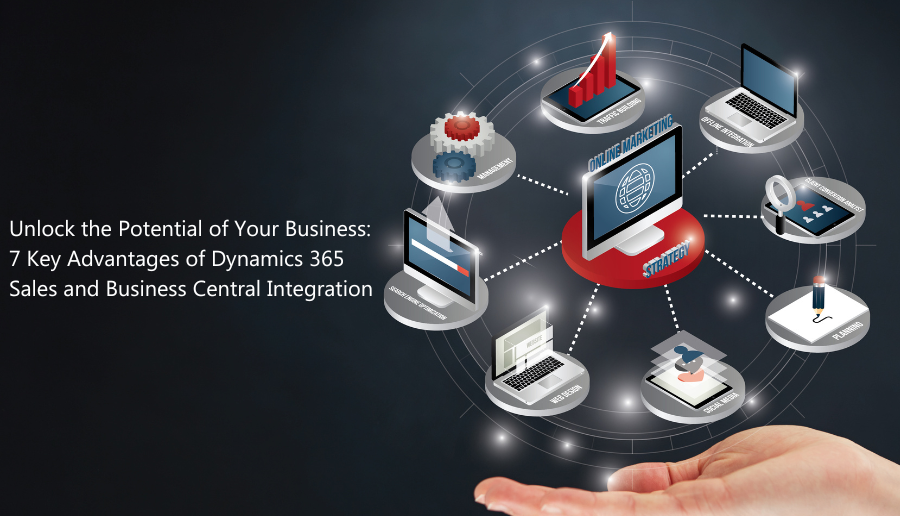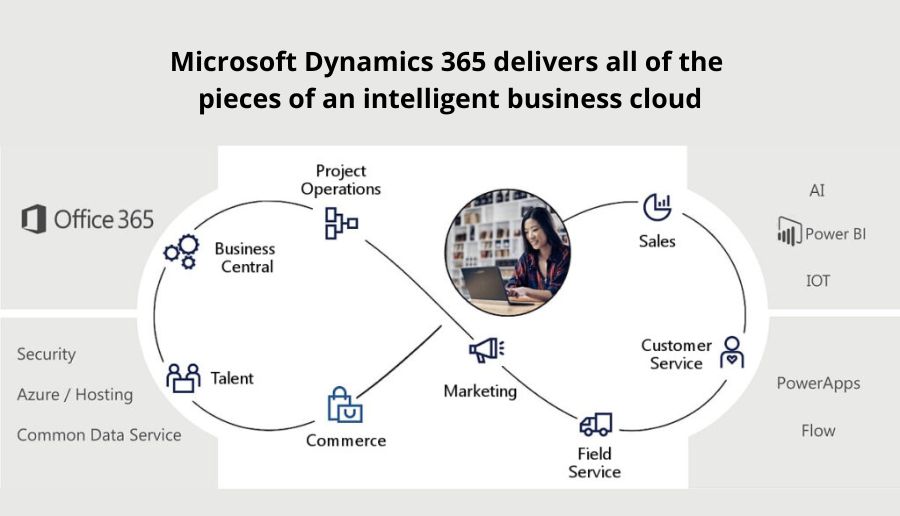It’s no secret that trends and technological advancements frequently shift, however one thing remains clear: teamwork is crucial for success. Breaking down barriers between departments is not only a strategic advantage to effectively and efficiently achieve a common goal, but a requirement to facilitate streamlined communication and data sharing that can address the growing complexities of modern business operations.
As competition continues to intensify and customer expectations rise, the need for smooth collaboration between sales and operations becomes increasingly essential. One solution to this challenge is integrating Enterprise Resource Planning (ERP) and Customer Relationship Management (CRM) systems.
The Power of ERP & CRM Integration
ERP and CRM systems are the backbone of many successful businesses, streamlining internal processes and nurturing customer relationships respectively. The integration enhances cross-departmental collaboration, boosts operational efficiency, and paves the way for data-driven decision-making.
So, what benefits do businesses commonly experience when integrating their ERP and CRM systems? Let’s explore:
Cost
The integration’s most substantial gain is the financial advantage it bestows, while simultaneously enhancing collaborative processes. With fewer systems to manage, you’re not just streamlining operations – you’re eliminating unnecessary complexity and significantly reducing the time it takes to achieve Return on Investment (ROI) in your business. Moreover, you only pay for the features you truly require, eliminating the burden of additional software costs.
Collaboration
Picture this scenario: Your sales team gains immediate insight into inventory levels, allowing them to provide customers with precise delivery timelines. Simultaneously, your operations team receives valuable data about customer purchases, aiding them in inventory management and production planning. This cooperative synergy not only dismantles barriers but also accelerates your business’s responsiveness to dynamic market shifts.
Predictive Insights
Integrating ERP and CRM also predicts the future (well, sort of). You can make more informed predictions about which products will likely gain popularity, allowing you to proactively plan.
Automation
Remember all those times you wished things moved faster when dealing with customers? Integrating your ERP and CRM systems with Microsoft Dynamics 365, for example, results in them becoming integral components of a cohesive platform that automates your tasks. Contracts, invoices, and orders get taken care of faster, making both you and your customers happy.
Fostering Loyalty
Last but not least, let's talk about sales and marketing. The integration allows you to harness the capabilities of each tool to enhance your outcomes. For instance, you could potentially send customized messages to customers who haven't made recent purchases, or you might have the opportunity to focus on potential new customers based on their past buying history.
Dynamics 365 Sales and Dynamics 365 Business Central: A Prime Example
Dynamics 365 Sales and Dynamics 365 Business Central stand as an embodiment of this collaborative synergy, offering businesses an integrated solution that demonstrates the power of a holistic approach, where sales insights seamlessly blend with operational data to create a unified front.
A special feature you get when you integrate Dynamics 365 Sales with Dynamics 365 Business Central is the AI capabilities of Copilot across the Dynamics 365 suite. This powerful combination revolutionizes the sales team's decision-making. Copilot not only provides suggestions and recommendations but also adapts its insights by leveraging the combined CRM and ERP data. The outcome? An elevated ability to anticipate customer needs and preferences, enabling tailored engagements and ultimately fostering stronger customer relationships.
Your ERP and CRM Integration Guide
Embarking on a successful ERP-CRM integration requires a Microsoft Partner with expertise, experience, and support, like TMC. We understand that each business is unique, with specific needs and objectives. Our team specializes in crafting integration plans that align with your industry standards and strategic goals. With a focus on customizations and tailored solutions, TMC ensures that your integration journey is seamless, efficient, and precisely tailored to your business’s DNA.
Why Choose TMC for your Dynamics 365 Implementations?
Microsoft Relationship
TMC has a long standing and deep partnership with Microsoft as a Gold Certified Partner for over 16 years.
Single Vendor Approach
TMC can provide expertise in various areas and industries: ERP, CRM, Office365, BI (Business Intelligence), IT, Server / Data Security, Supply Chain,Management, Development/Customization, Hosting Services, Training, Implementation Services/Support and more with internal expertise or trusted partners.
Our Core Competencies
- Evaluation of Business Objectives
- Software Procurement
- Business Process Flow/Best Practices
- Project Management
- Implementation
- Training
- Data Conversion
- Integration
- Documentation
- On-going support
- TMC specializes in Back Office ERP, CRM and Hosting Solutions
For guidance on the integration and what it would look like for your business unique needs contact us today.








